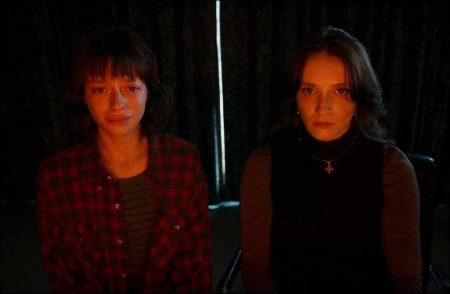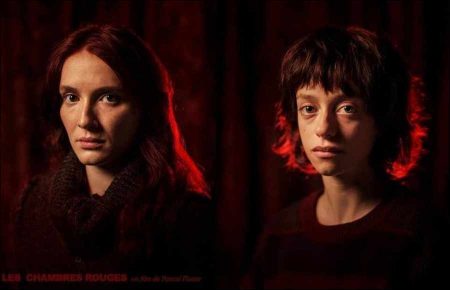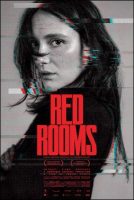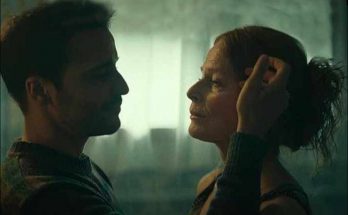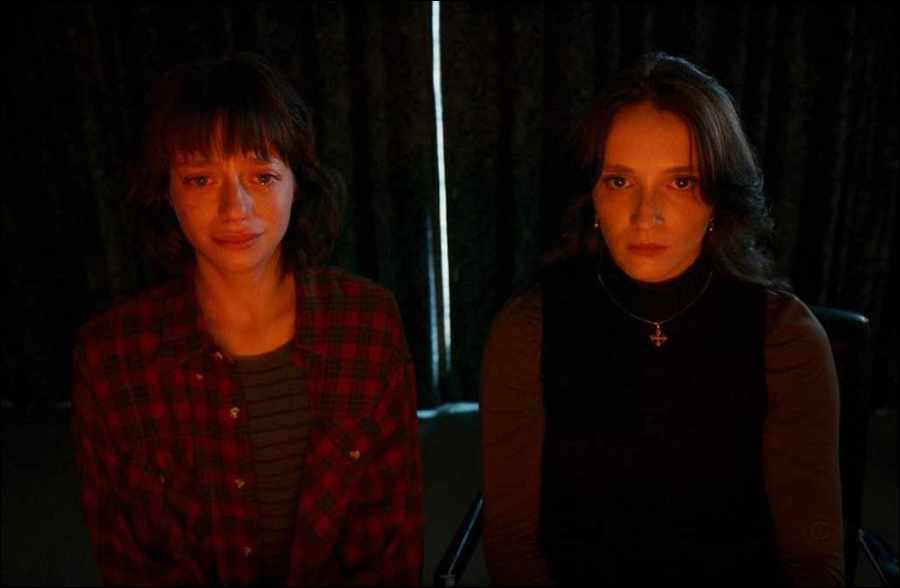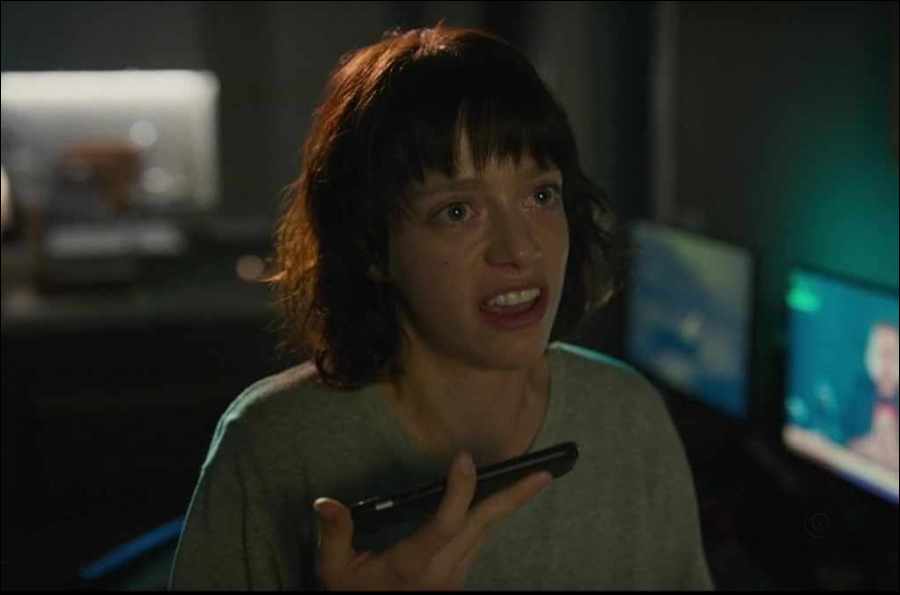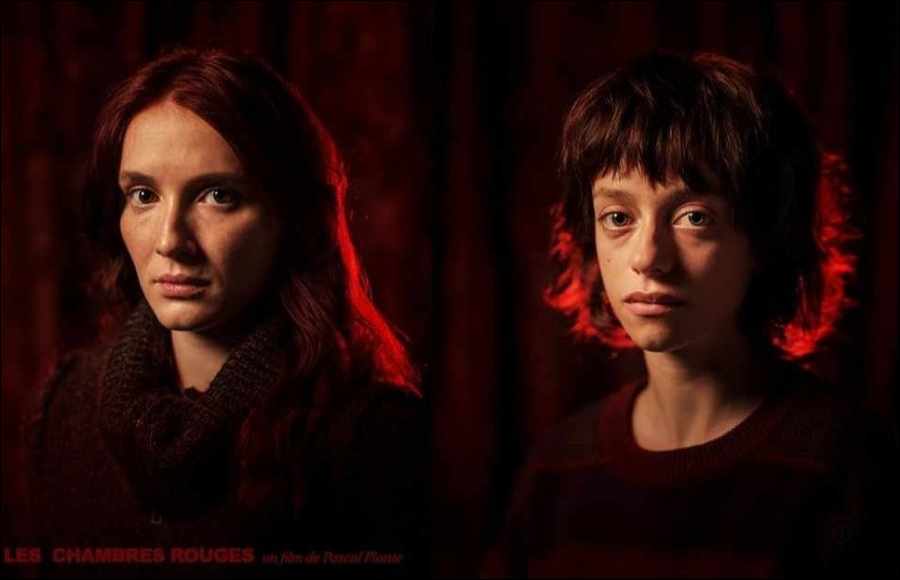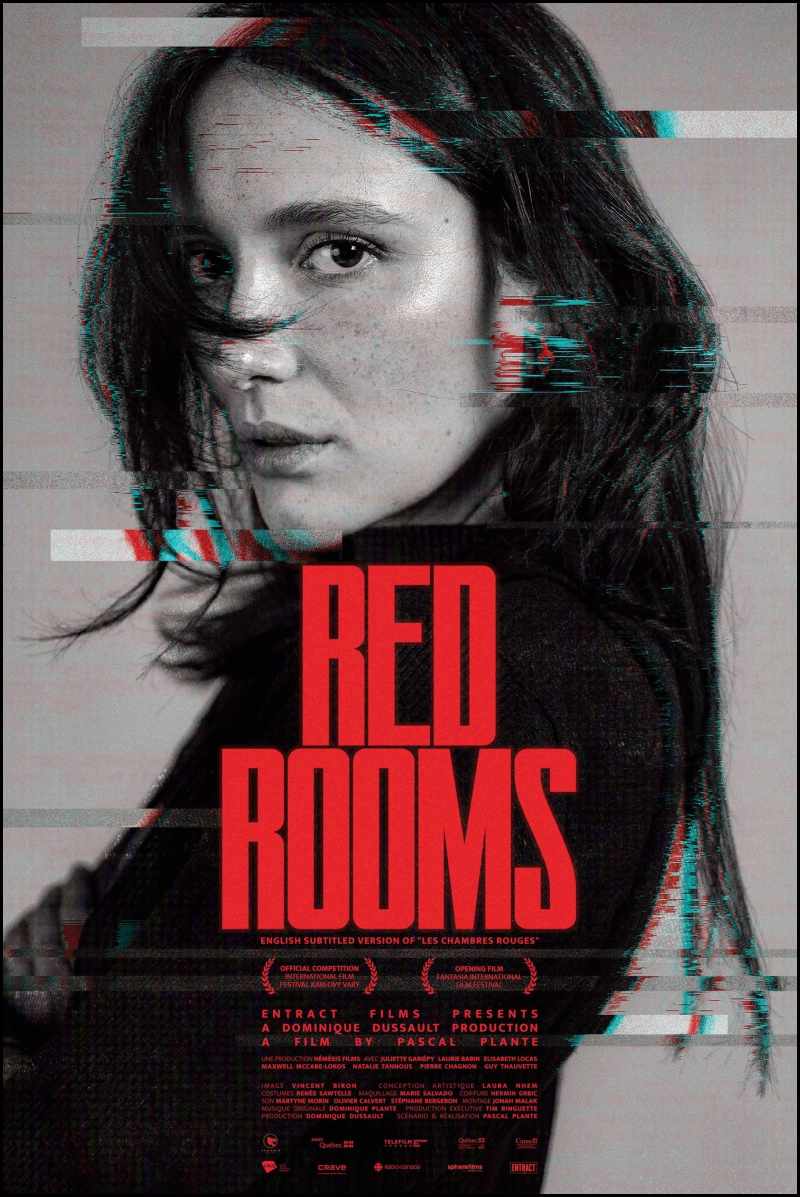Red Rooms movie storyline. The highly publicized trial of a man accused of brutally assaulting and killing three teenage girls for spectacle on the dark web begins in Montreal. Kelly-Anne pays morbid attention to everything concerning the man nicknamed “the demon of Rosemont”, just like Clémentine, who left Thetford Mines to support the accused, whom she believes to be innocent and a victim. in a set-up. Between her modeling contracts, her online poker games and her amateur investigative skills, will Kelly-Anne’s obsession with this sinister affair get the better of her mental health?
Red Rooms is an American crime thriller film directed by Pascal Plante and starring Juliette Gariépy, Laurie Babin, Elisabeth Locas, Maxwell McCabe-Lokos, Natalie Tannous, Pierre Chagnon, Guy Thauvette, Maria Belmonte, Charlotte Aubin, Myriam Baillargeon and Raïssa Beaudoin. The screenplay was written by Pascal Plante.
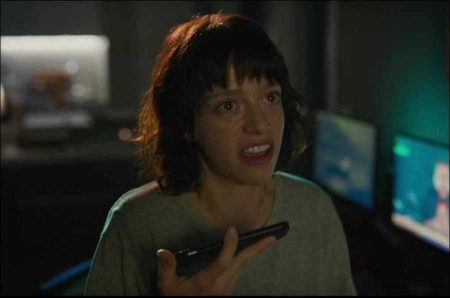
Film Review for Red Rooms
There is a quease factor to the popular fascination with serial killers that goes well beyond morbid curiosity about the crimes themselves — specifically, those who can’t get enough of such subject matter. How many dramatic depictions do we need of, say, Jeffrey Dahmer or Ted Bundy? Surely no new insights can truly be gleaned. After a point, it becomes a sheer, ghoulish fixation on real-life torture, rape and murder. It’s grotesque that such high-profile monsters become their own sort of entertainment franchise in a way, forever drawing fresh exploitation for a sizable, insatiable audience.
Facing down that phenomenon in a disturbingly direct — if fictive — manner is the French-language “Red Rooms,” which Utopia opens in limited U.S. theaters this week following a home-turf release in Canada a year ago. Writer-director Pascal Plante’s third feature trains disquieting focus on a trial “groupie” seemingly attracted to a man accused of the heinous deaths of abducted teenage girls.
Her utter absorption in the case may turn out to have an unexpected motivation. Nonetheless, the coolly controlled film unsettles with a kind of diseased psychological atmosphere — hewing not from the mindset of the accused so much as the parasitical sickness that makes spectators obsess over his kind. In contrast to most movies about serial killers, this one offers nary a glimpse of violence, let alone any wallowing in sadism. Yet somehow that makes it all the more icky — at times the squirm factor is such that you may think no shower could wash a viewer’s taint-by-association away.
-Anne (Juliette Gariepy) is introduced sleeping outside near a dark downtown street for reasons that have nothing to do with homelessness. Indeed, she’s a successful fashion model with a large, sleek apartment and commanding city view way up a Montreal high-rise. What’s got her here well before dawn is a desire to be first in line for a dubious prize: Gaining one of the few seats open to the public (as opposed to testifying witnesses or press) in a courtroom where an already-notorious trial is beginning.
The accused is one Ludovic Chevalier (Maxwell McCabe-Lokos), who purportedly kidnapped, tortured and killed three teenage girls — on camera, for an audience of paying voyeurs on the “dark web.” Two such videos found their way to authorities, prompting his arrest; two of the corpses have also been located. A third juvenile’s fate remains unknown, though it is assumed she was another victim.
While the weaselly-looking Chevalier sits listless and unreactive in his sealed booth, never uttering a word, opposing counsel make their cases. His defense lawyer (Pierre Chagnon) relies simply on casting doubt, arguing that the pile of damning circumstantial evidence falls short of absolutely proving his client’s guilt. The prosecutor (Natalie Tannous) has the inevitable emotional response elicited by truly ghastly crimes on her side — and does not spare the room their abhorrent details, even when that causes agony for the attending parents of victims.
But what is glam, close-mouthed Kelly-Anne doing here? Is she just a gawker? Her stand-offish air marks her as a very different type from Clementine (Laurie Babin), a bug-eyed youth who’s bussed in from hinterlands to stare adoringly at the so-called “Demon of Rosemont,” having decided for no particular reason that he is innocent as driven snow. She’s got that maniacal “Manson Girl” look of mental illness as blindsiding contagion.
At first we can’t help but recoil on Kelly-Anne’s behalf, stuck “befriending” this hot mess–even more so when she eventually invites the younger woman to stay with her, for lack of any other shelter. But it turns out they are good for each other, to an extent. Clementine seems a foundling in need of any stable influence, while in her spookily near-complete isolation (there’s no hint of contact with friends or family), Kelly-Anne could use a little basic humanizing.
It turns out this chilly protagonist has been spending unhealthy time on the dark web herself, wading into gambling, cryptocurrency and worse. Is she an ambulance-chaser even more deeply screwed-up than her hapless houseguest? As the trial plods on — and at least one official witness points out the omnipresent “groupies,” saying they “should be ashamed” of their presence — we begin to wonder when Kelly-Anne’s obsessions will reach a tipping point, causing ruin to herself or others.
Purportedly inspired by Plante’s own traveling down a few too many dark online rabbit-holes during COVID lockdown, “Red Rooms” (a name for purported illegal “snuff” sites generally thought to exist only in urban legend) keeps us guessing about its heroine. Is she as empty and soulless as she seems? Is dabbling in various criminal undergrounds the only way she can feel alive? In the end, the screenplay springs a major revelatory turnabout that itself isn’t fully explained, and feels somewhat unconvincing. But what lingers afterward is what preceded it: the unnerving sense of getting too close to someone whose interest in sketchy ideas has become a poisonous compulsion.
The antiseptic quality of both the all-white courtroom and Kelly-Anne’s featureless apartment heighten that almost fungal quality, as does Gariepy’s carefully calibrated, ambiguous performance. At a certain point characters are exposed to video of the crimes that took place in Chevalier’s garage. We only hear the audio — which is excruciating. But adding further frisson to the experience is the utter blankness on the heroine’s face as she watches (not for the first time) content most people would pay any price to avoid. Relying entirely on the power of suggestion, this sequence manages to be more skin-crawling than the goriest “torture porn” death in a conventional horror film.
It’s an accomplished feature in all departments. A mood of elegant claustrophobia that feels like it’s barely holding back malevolent chaos is amplified by DP Vincent Biron’s images, Dominique Plante’s ominous score and other major contributions.
Red Rooms (2023)
Les Chambres Rouges
Directed by: Pascal Plante
Starring: Juliette Gariépy, Laurie Babin, Elisabeth Locas, Maxwell McCabe-Lokos, Natalie Tannous, Pierre Chagnon, Guy Thauvette, Maria Belmonte, Charlotte Aubin, Myriam Baillargeon, Raïssa Beaudoin
Screenplay by: Pascal Plante
Production Design by: Laura Nhem
Cinematography by: Vincent Biron
Film Editing by: Jonah Malak
Costume Design by: Renée Sawtelle
Art Direction by: Fanny Gauthier
Music by: Dominique Plante
MPAA Rating: None.
Distributed by: Utopia
Release Date: October 7, 2023
Views: 33
